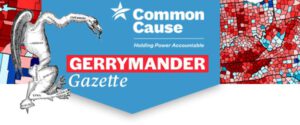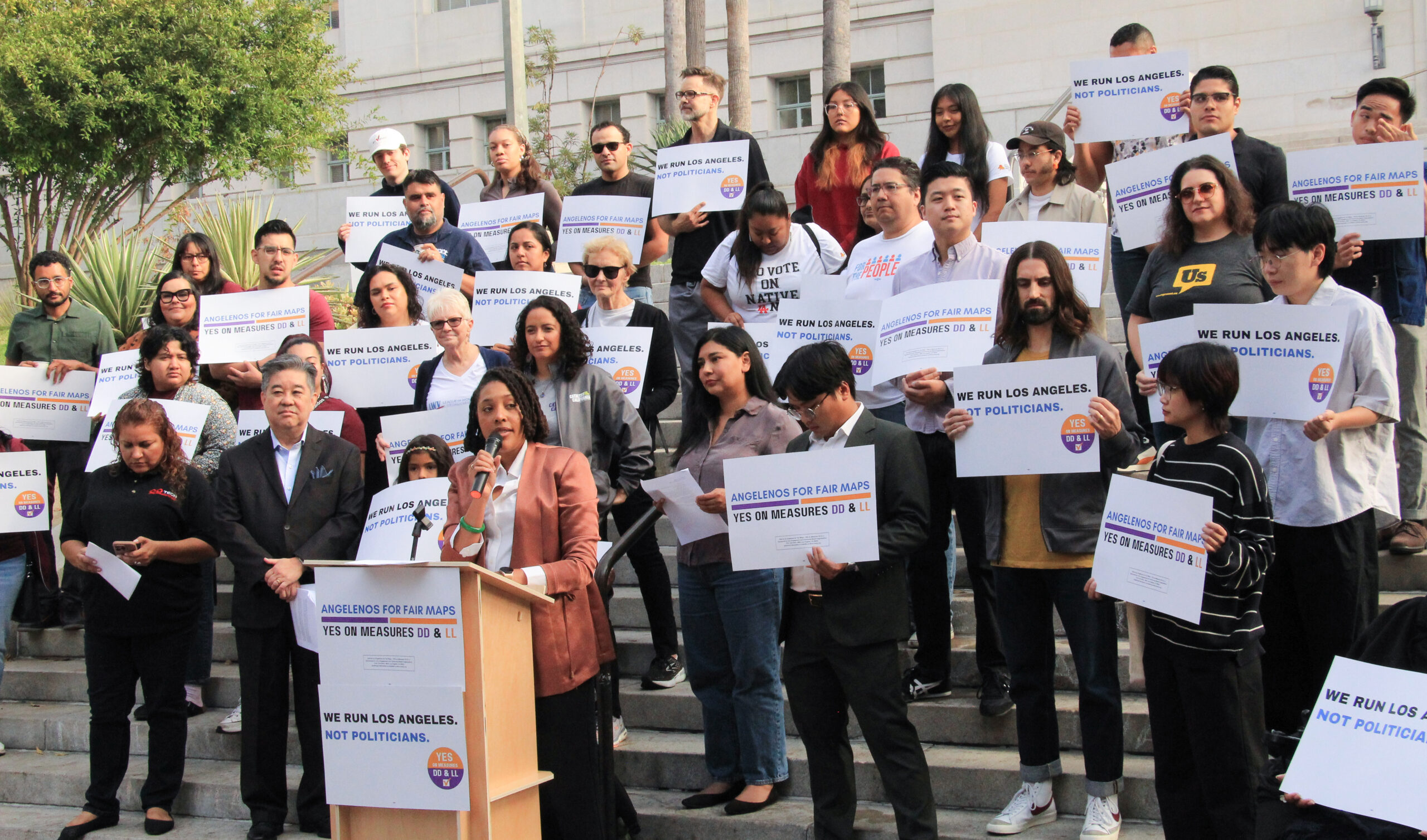Résumer
Common Cause Wrapped 2024
Article de blog

Last week was a tough one for democracy advocates. One silver lining was the creation of new independent redistricting commissions in the second most populous city and school district in the United States. Measures DD and LL, which passed overwhelmingly, will create two new independent commissions: one to draw Los Angeles City Council districts and the other to draw Los Angeles Unified School District voting maps. These wins provide textbook examples of how patience, political will, and deep community engagement led elected officials to cede the power to draw districts to the people. Let’s dig into how the commissions will work and how it happened.
How will the commissions work?
How did this win happen?
In the aftermath of leaked tapes in the City of Los Angeles revealing racist comments made by city leaders and councilmembers, California Common Cause denounced the comments and called on city leaders to immediately take steps to reform its redistricting process to implement a fully independent redistricting commission.
As the Council began to consider how an independent commission would be structured, California Common Cause released five key principles. These included a focus on commission independence, community-centered map-drawing criteria, and requiring a transparent and participatory process.
Throughout the development of IRC reform, California Common Cause partnered with academics and researchers, as well as other community organizations including the OUR LA coalition, to push the ad hoc committee to create the strongest possible IRC proposal. This input was reflected in final ballot language approved for the City IRC in April of 2024 and for the LAUSD IRC two months later.
In the spring of 2024, Common Cause brought together a coalition of community organizations involved in the advocacy to create an IRC to create a campaign committee dedicated to educating voters and ensuring that the IRC ballot measures would pass. Les habitants de Los Angeles pour des cartes équitables launched in September 2024 and held a press conference in front of LA City Hall on October 9, 2024, the two-year anniversary of the leaked tapes. California Common Cause authored the ballot argument and rebuttal in favor of the LAUSD IRC and served as a signatory for the City IRC ballot argument.
Angelenos for Fair Maps won endorsements from local organizations, community leaders, and the Los Angeles Times. The campaign published digital and print ads (including in local and ethnic media), reached voters at community events, sent out postcards and texts, and coordinated phone banking in support of the measures. The campaign focused on engaging communities of color, historically disenfranchised communities, and those who have been less likely to vote recently to ensure that they have a voice in this reform and future independent redistricting processes.
With the final tally still being counted, measures DD et LL are well on their way to winning with more than 74% of the vote.
Cette newsletter a été produite par Common Cause et compilée par Dan Vicuna. Abonnez-vous à la Gerrymander Gazette ici. Pour plus d'informations ou pour transmettre des nouvelles, contactez Dan Vicuna.
Résumer
Article
Article de blog
